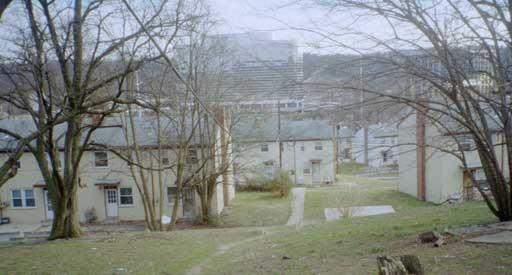Dunbar Mutual Homes Association

During the 25 years of the Dunbar Mutual Homes Association’s first mortgage, members paid $65 a month for a two-bedroom house or $72 for a three-bedroom, plus a down payment.
On an 11-acre site overlooking Shirlington from Arlington’s Green Valley, 86 African-American households built a community dedicated to providing affordable housing to people locked out of the local real estate market because of their race. Dunbar Mutual Homes Association was a low-cost housing cooperative formed in 1949 by a group of black veterans and their families already living in homes built by the U.S. government to house war program workers.
When the war ended, the government offered the entire development to Arlington County for one dollar. The County declined. Many other people and businesses, however, recognized the property's value. One local car dealer reportedly offered a million dollars for it.
Black residents already living there wanted to stay and formed a non-profit housing cooperative to put together a bid. However, the Dunbar Mutual Homes Association found they needed help to obtain funds from local banks. James A. Hewitt, a white real estate broker in Washington, D.C., helped the Dunbar Association secure loan money from a New York bank. Hewitt also lent Dunbar the cash for closing. Since the complex was initially built to benefit veterans and displaced people, and many of the residents were veterans’ families, the government — rather than selling to the highest bidder — accepted the Dunbar association’s bid of $264,000.
During the 25 years of the Dunbar Mutual Homes Association’s first mortgage, members paid $65 a month for a two-bedroom house or $72 for a three-bedroom, plus a down payment. The organization was a cooperative, so members bought in; they did not rent. According to a 1974 newspaper article commemorating the association’s 25th anniversary, Dunbar’s founders considered their project an alternative to public housing. This experiment helped generation after generation of people of modest resources build self-sufficiency and pay their own way.
Images
